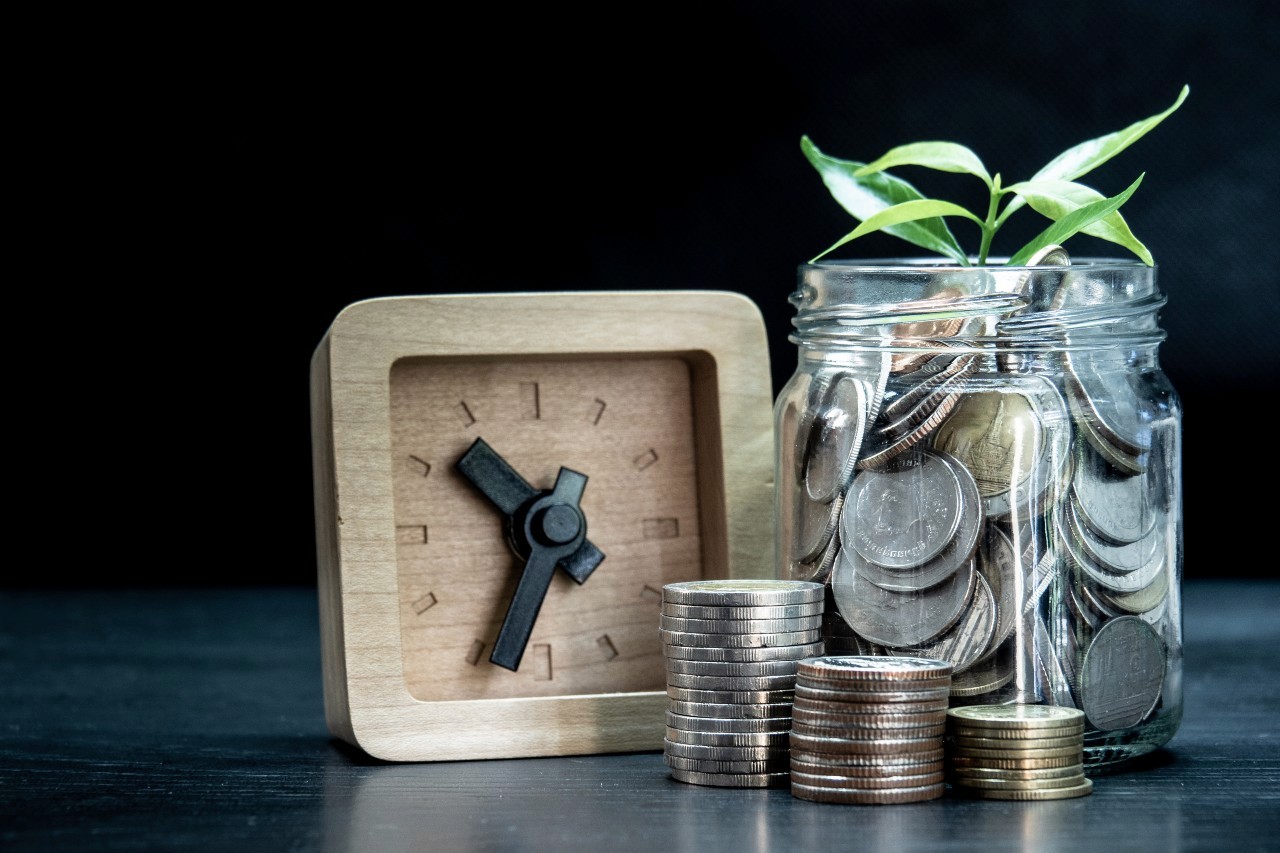Having a bank account is pretty essential for saving money. You can toss in some cash and take it out whenever you want, helping your savings grow over time. Now, here's the interesting part: besides giving you a little extra through interest, banks offer ways to make your money work harder. One of these ways is called a term deposit. Let's dive into what that's all about and why it's a smart move, checking out the different types and advantages you can explore.
Now, What is a Term Deposit?
Wondering what a term deposit is and how it is different from a fixed deposit? It's all about putting money into your account at a financial institution, be it a bank, NBFC, credit union, post office, or building society. This investment comes with short-term maturities and varying minimum deposit levels.
Remember, you can only withdraw the funds after the term ends. If you need to end it early, you might face penalties, although some time deposits allow prior termination with advance notice.
Term Deposit – The Crucial Facts You Need to Know:
-
Fixed Interest Rate
Term deposits stick to a set interest rate, not changing with the market's ups and downs.
-
Secure Investment
Term deposits are a rock-solid choice because their interest rates stay steady, not getting affected by economic changes.
-
Flexible Investment Duration
Investors get to decide how long they want to invest, and usually, going for a longer time means a higher interest rate. But it's smart to compare rates and time options before making a decision.
-
Interest Payment Choices
Investors can decide when they want to receive the interest – either all at once when the term ends or at regular intervals, like monthly, quarterly, or annually.
-
Wealth Building
The consistent interest earned on the investment ensures that investors' wealth grows, even when the market faces challenges.
-
Accessible Entry, Limitless Potential
Starting with an investment limit as low as INR 1000 (depending on the financial institution), term deposits welcome investors with varying budgets. Importantly, there's no upper limit on the amount you can invest, providing flexibility for both modest and substantial investments.
-
Rolling Over
Alright, let's talk strategy. Say you're an investor and your term deposit matures, but you're not in a hurry to cash out. What if you could hit the refresh button? That's the idea behind ""rolling over."" It's like reinvesting your maturity proceeds into a new term, with a bonus – extra interest. So, no rush to spend your money right after the term deposit matures.
-
Loan Against Deposit
In situations demanding financial liquidity, investors can opt for a loan against their term deposit. This facility allows them to borrow up to 60-75% of the deposit amount, providing a viable solution in contingencies.
-
Penalty for Early Withdrawal
Term deposits have a fixed time, and it's like being 'locked in.' If an investor takes out the money before this locked-in time is over, they have to pay a penalty to the financial institution, along with getting a lower interest.
-
Deposit Insurance
According to RBI rules, any deposit in a certified bank is insured for up to Rs 1 lakh under the Deposit Insurance and Credit Guarantee Corporation (DICGC).
Types of Term Deposit
-
Cumulative and Non-Cumulative Deposits
The cumulative term deposit suits investors who don't seek regular income, as it reinvests earned interest into the deposit, delivering a lump sum at the term's conclusion. Conversely, the non-cumulative term deposit is tailored for those desiring regular interest payouts, with interest credited at intervals—monthly, quarterly, or annually.
-
Sweep-in Facility Term Deposit
The financial landscape offers a strategic feature known as the Sweep-in facility, wherein account holders can establish an upper limit for their savings account. Any surplus beyond this threshold automatically converts into a term deposit. In instances of insufficient funds in the savings account, the deficit is covered by withdrawing from the term deposit, incurring a loss of interest solely on the swept-in funds. Notably, sweep-in term deposits generally yield a more favourable interest rate.
-
Short-term and Long-term Deposits
Term deposits are categorized based on investment holding periods. Short-term deposits require a lock-in period ranging from 1 to 12 months, making them ideal for investors seeking expedited returns. Conversely, long-term deposits must have a lock-in period ranging from 1 to 10 years, presenting a more lucrative interest rate compared to their short-term counterparts.
-
Post Office Time Deposit
Post offices extend their services beyond mail handling to include financial offerings like the post office term deposit. This deposit can be initiated either as an individual or a joint account. Notably, individuals have the flexibility to transfer their deposits between post offices or maintain multiple accounts within the same post office. The minimum deposit requirement stands at Rs.200, with a prevailing interest rate of 7.5% for a 5-year term. Furthermore, deposits with tenures surpassing 5 years qualify for tax benefits outlined in Section 80C of the Income Tax Act, of 1961.
-
Tax Saver Term Deposits
Tax-saver term deposits play a smart role in managing finances by providing a tax deduction of up to Rs 1.5 lakh under Section 80C of the Income Tax Act. It's worth noting, though, that these deposits come with a lock-in period of 5 years, and any interest income surpassing Rs 40,000 is liable to taxation. Generally, the standard interest rates for these deposits fall within the range of 5.5% to 7.75%.
How a Bank Uses a Term Deposit
When you save money in a fixed-term account at the bank, they use your money to make more money. They might invest it or lend it to others, charging them interest. The extra money the bank makes is shared with you as a little bonus for keeping your savings with them.
Saving with Term Deposits and Interest Rates
When interest rates go up, many folks start eyeing term deposits because the higher borrowing costs make the idea of saving money more tempting. On the flip side, when interest rates take a dip, people usually lean towards borrowing and spending more, which tends to lessen the demand for term deposits. It's essential for interest rates to align with the time until maturity. For instance, a six-month term deposit may offer a lower interest rate compared to a two-year time deposit. This setup allows investors to secure a higher rate by committing their funds to a financial institution for an extended period. Additionally, higher rates may be available for larger deposits.
Inflation's Impact on Term Deposits
Inflation, representing the rise in prices over a fiscal year, plays a crucial role in term deposits. If the term deposit rate is 2% and inflation is 2.5%, customers might not earn enough to offset the increased prices. Unfortunately, term deposits may struggle to keep pace with inflation.
FAQs
-
Which is better FD or term deposit?
Fixed deposits guarantee a stable interest rate, while time deposits might have a changing interest rate based on market performance. Also, fixed deposits usually have a longer lock-in period compared to time deposits.
-
How do I calculate a term deposit?
To find the yearly interest, you multiply the deposit amount (like Rs.20,000) by the interest percentage (e.g., 2% or 0.02). Afterward, you multiply that by the number of years to get the total interest earned.
-
Are term deposits calculated monthly?
The accumulated balance and interest details are typically provided monthly. However, keep in mind that while all months are assumed to be of equal length, some term deposit accounts may accrue interest daily, leading to varying days’ interest depending on the month’s specific number of days.







